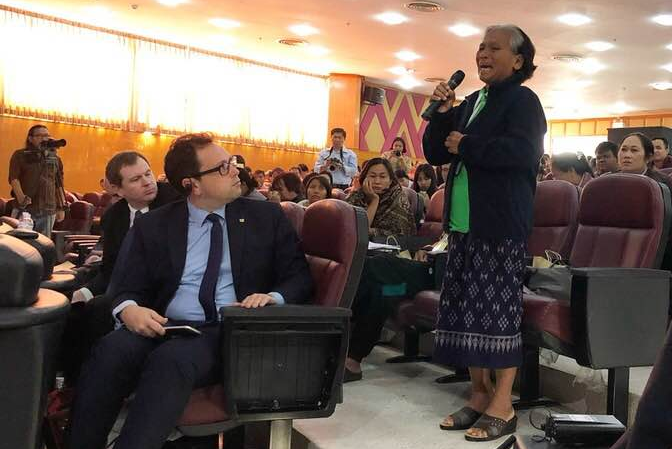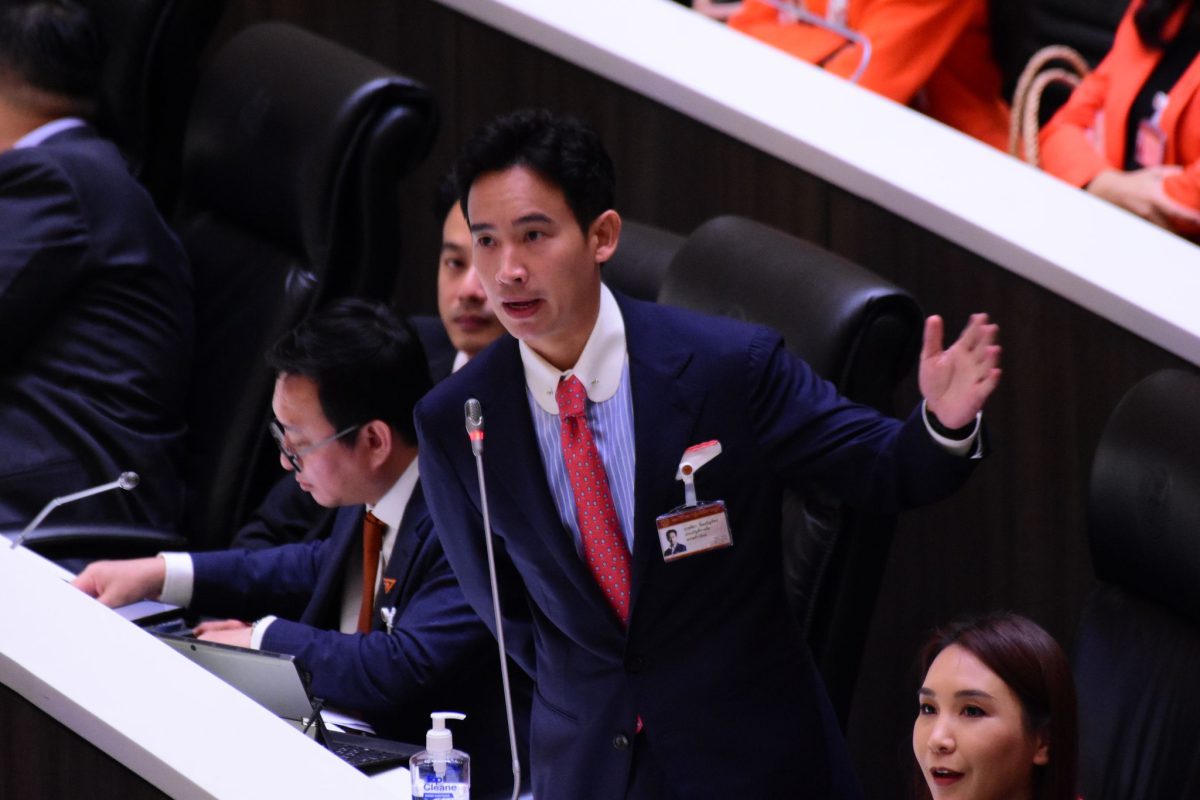Guest contribution by Hannah Hoffman
The Northeast has been hit hard by human rights violations in the past three years. After studying in Khon Kaen for one semester, Hannah Hoffman reflects on her experiences engaging with issues of human rights and environmental justice in Isaan.
Frustration. What is frustration? It is what leaves your mouth tasting of iron but that tugs at your brain, begging you to learn more. It is your heart making one decision and your brain making another. It is knowing that chemical fertilizers are increasingly destroying the Earth and eating away at the farmers who use them and yet, large corporations continue to push them for their own selfish, capitalistic gains. It is knowing that the livelihood is being stripped away from countless villagers for the purpose of building a dam that does not even have a real purpose.
Anger. What is anger? It is your blood boiling, your veins pulsing, your heart aching. It is your mind resisting the urge to clench your fist and send it hurtling at the force that has you angered. It is understanding that those who are in control will almost always be able to move you around like a helpless pawn. It is recognizing that a plan to combat deforestation is actually just an excuse to replace innocent villagers with the more profitable cash crops. It is the government refusing to help villagers despite the concrete evidence that the mine it has condoned has poisoned all of the nearby plants, animals, and villagers. It is opening an eye to all of the injustices in the world.
Fear. What is fear? It is paralyzing. It is the pit in the bottom of your stomach gnawing at your insides, urging you to prioritize your life over everything else. It is not knowing how you will feed and support your family. It is watching rashes crawl up your skin and seeing the mine’s poisons slowly cause your body to deteriorate. It is lying awake in your bed all night and wondering when everything will be ok again.
Courage. What is courage? It is taking a leap of faith, choosing to switch to organic farming when you’re uncertain of how it will impact your yield. It is demanding that the government compensate the countless villagers who lost everything after dam construction destroyed the wetland. It is forming a movement and meeting weekly even though it is illegal to gather in a group of more than five people. It is being strong, never backing down, continuing to force the alien idea of justice down the throat of those who are built on the world’s injustices, despite the ever present knowledge that with one swift move of the pen, your life could be destroyed, over, done.
And then there is hope. Hope. What is hope? It is the light at the end of the dark tunnel. It is a plant that, despite all odds, grew through the snow, survived through the winter, and got to cherish summer as a fully grown flower. Hope is the chance of life, of success, of happiness. It is, despite all of the suffering and constant “NO’s,” villagers attending a human rights conference, sharing their experience with injustices, standing up for what they believe in, and doing this all in front of international ambassadors and foreign officers who may actually be able to make a difference. It is being given the space to vent. It is being heard.
A few weeks ago, I, along with 15 other students studying in Khon Kaen, attended the 8th Annual Isaan Human Rights Festival. Filling the room were many of the same villagers I had met, talked to, and lived with throughout the semester, along with many more whom I did not have the chance to meet.
However, what made this particular meeting with the villagers different from all of the other ones was the of international ambassadors and foreign officers sitting in the audience, listening to the villagers as they voiced the concerns that they had kept bottled up for so long. One by one, villagers took turns, in front of these international representatives, sharing their communities’ struggles and movements. Sitting in this room, I could feel the frustration, anger, fear, courage, and hope building up, gripping the ears of the international leaders, begging them to hear, to listen, to understand.

The audience sat in silence as they listened to one villager’s cries for justice at the 8th Annual Isaan Human Rights Festival on November 24 in Maha Sarakham. Photo credit: Courtesy of the Embassy of Sweden
As I reflect on my semester in Thailand, it is difficult to not also think of the American events and tragedies that have occurred while I have been away. There is a part of me that feels a sense of dread wash over me when I remember that I will soon be back in the States.
How do I go back to the country that is supposed to be an international role model but is instead just setting a precedent for hatred and evil? How do I go back to a country where mass shootings are becoming all too common, where sexual assault is impossible to escape, where the president is telling us that it is not ok to be different, and unique, and yourself?
Four months ago, I would not have known the answer. I would have become overwhelmed by the bad news, closed my eyes, and frolicked in my blissful ignorance.
But four months in Thailand has taught me that there is another way. Four months of meeting villagers, of hearing their stories, of seeing their struggles, and then working with them to complete projects and reports that really can make a difference, has taught me that knowledge pays off. More importantly, it has taught me that in the face of injustice we must rise up, embrace it, and stomp on it with full force because there is nothing that frustration, anger, fear, courage, and hope cannot defeat.
Hannah Hoffman is an Environmental Studies major with an emphasis in psychology at Macalester College. She just completed a semester learning about development and globalization issues in Khon Kaen this semester.




